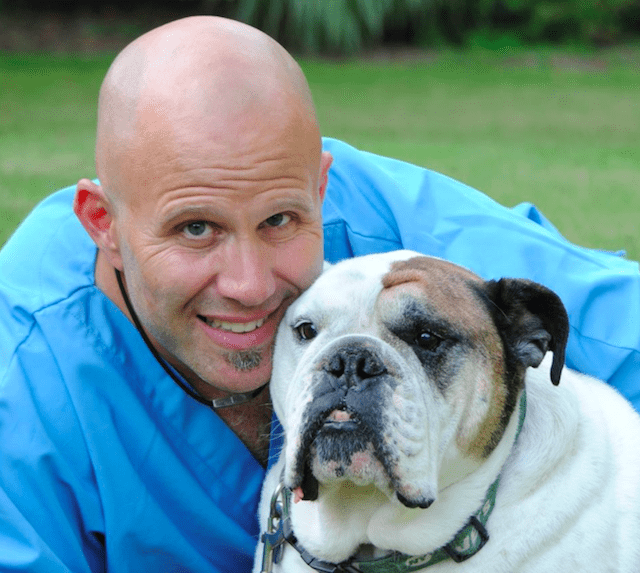Most pup parents, especially those who’ve adopted puppies, have heard of the dreaded Parvovirus aka Parvo in dogs ( parvo for short).
Even if you don’t know much about how it spreads or what the symptoms look like, you probably know that the illness is highly contagious and can be fatal.
Luckily, there are preventative measures you can take, and early diagnosis may have a more promising prognosis than you previously thought. We here at iHeartDogs got in touch with Dr. Michel Selmer, DVM, CTCVMP, to answer some questions.

Dr. Selmer is also known as “The Caring Vet,” and offers traditional, holistic, integrative medical, surgical, and wellness care to his patients. He’s also the author of The Best of Both Worlds: An Advanced Guide to Integrative Veterinary Care for Happier, Healthier Pups, available on Amazon (digital copies are $2.99 and it’s free to Kindle Unlimited subscribers).
What exactly is Parvo and how is it contracted?
Dr. Selmer: Parvo is a virus. Dogs become infected through oral contact with the virus in the poop, vomit, saliva, infected soil, or anything that may have been in contact with the virus (like clothes of someone handling a dog or its feces or saliva, or vomit that has been infected with the virus). If a dog is exposed to parvovirus, it may take 3-7 days for them to get sick. Diagnosis is usually made based upon the clinical signs in conjunction with a positive fecal test.
Is every puppy at risk of getting Parvo?
Dr. Selmer: Any dog can get parvovirus. Age/breed/sex does not determine if a dog will suffer from being exposed and/or infected. What determines if a dog will be infected depends on how much of the virus they are exposed to, if the dog has had the virus before, if the dog was previously vaccinated, how strong the dog’s immune system is, and their general health status.
What are the symptoms of parvo?
Dr. Selmer: Parvovirus causes gastroenteritis in mostly puppies and adolescent dogs. Symptoms include bloody diarrhea with mucus as well as vomiting. Not only does parvovirus attack the cells lining the intestines, it can also attack the cells of the heart and can lead to heart disease.
If a puppy gets parvo, what is the chance they can survive?
Dr. Selmer: If a puppy gets parvovirus and does not receive prompt diagnosis and treatment, it has been reported that up to 91% may die. If the puppy is diagnosed early and treated aggressively, it has been reported that survival rates can reach up to 80-95%. Early detection and aggressive treatment are crucial. In order to help control the spread of this virus, infected dogs must be isolated as they may be contagious for 2-3 weeks following the infection.
How can I prevent my dog from getting parvo?
Dr. Selmer: It is important to have the dog vaccinated as recommended by your veterinarian. A parvovirus vaccine titer (a blood test) can be completed to help confirm if the vaccine has taken and your dog has appropriate immune system protection. Also, the general health status of your dog is very important. Proper diet, exercise, proper rest, and reducing the stress factors your dog experiences all will contribute to how your dog would handle exposure to the virus.

No pup parent wants to imagine their dog getting sick, especially with a potentially fatal virus. But prevention is key, and the more you know, the better you can protect your pooch!
We want to say thank you to Dr. Selmer for taking the time to answer these questions. You can learn more at www.TheCaringVet.com and follow him on Facebook.
Read next: 8 potentially deadly diseases you can get from your dog
